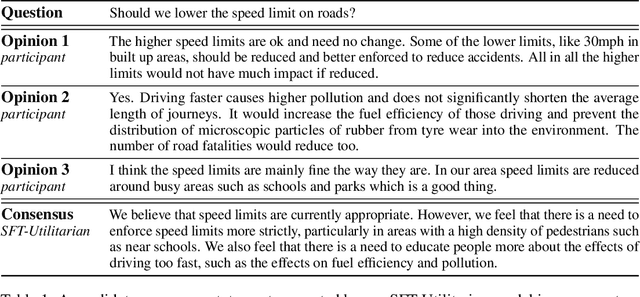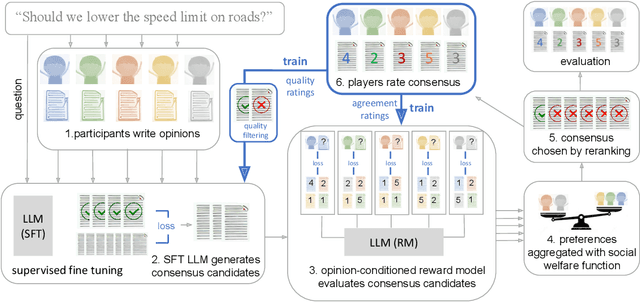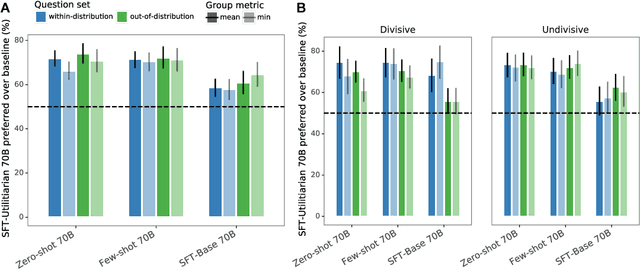Hannah R. Sheahan
Fine-tuning language models to find agreement among humans with diverse preferences
Nov 28, 2022



Abstract:Recent work in large language modeling (LLMs) has used fine-tuning to align outputs with the preferences of a prototypical user. This work assumes that human preferences are static and homogeneous across individuals, so that aligning to a a single "generic" user will confer more general alignment. Here, we embrace the heterogeneity of human preferences to consider a different challenge: how might a machine help people with diverse views find agreement? We fine-tune a 70 billion parameter LLM to generate statements that maximize the expected approval for a group of people with potentially diverse opinions. Human participants provide written opinions on thousands of questions touching on moral and political issues (e.g., "should we raise taxes on the rich?"), and rate the LLM's generated candidate consensus statements for agreement and quality. A reward model is then trained to predict individual preferences, enabling it to quantify and rank consensus statements in terms of their appeal to the overall group, defined according to different aggregation (social welfare) functions. The model produces consensus statements that are preferred by human users over those from prompted LLMs (>70%) and significantly outperforms a tight fine-tuned baseline that lacks the final ranking step. Further, our best model's consensus statements are preferred over the best human-generated opinions (>65%). We find that when we silently constructed consensus statements from only a subset of group members, those who were excluded were more likely to dissent, revealing the sensitivity of the consensus to individual contributions. These results highlight the potential to use LLMs to help groups of humans align their values with one another.
 Add to Chrome
Add to Chrome Add to Firefox
Add to Firefox Add to Edge
Add to Edge